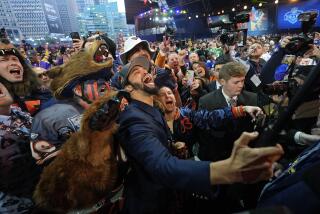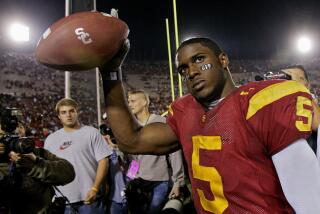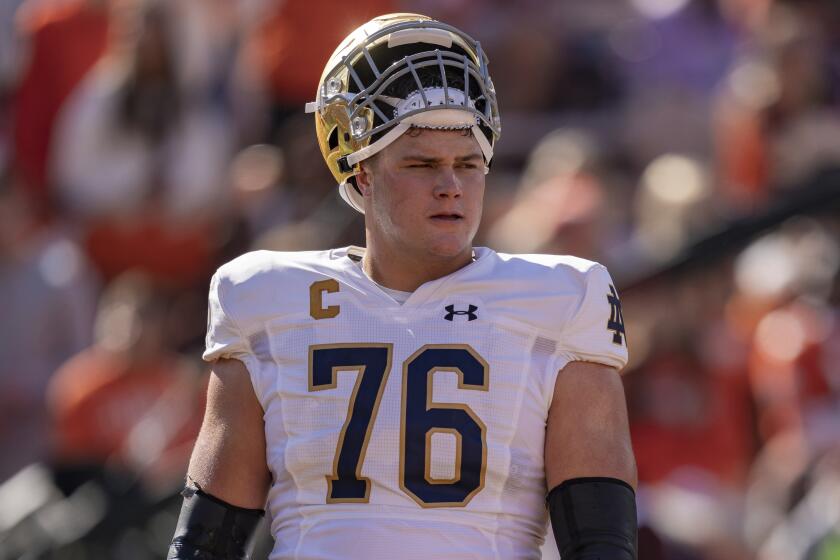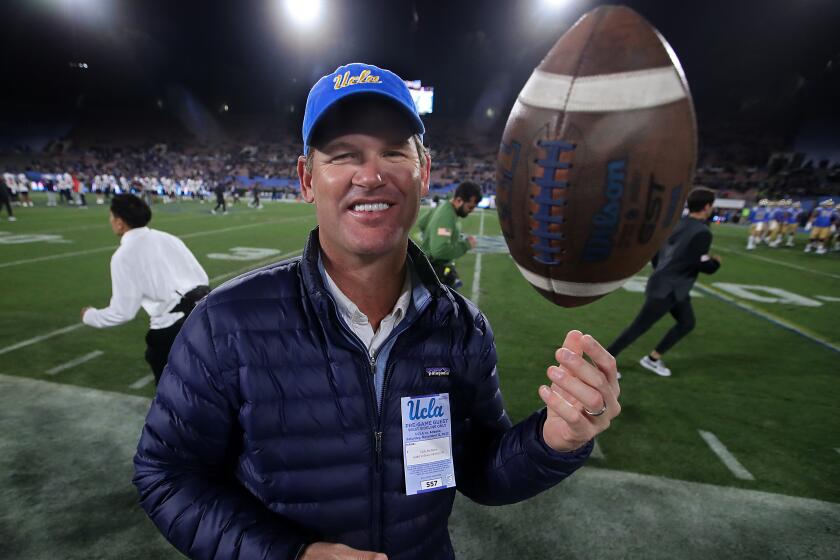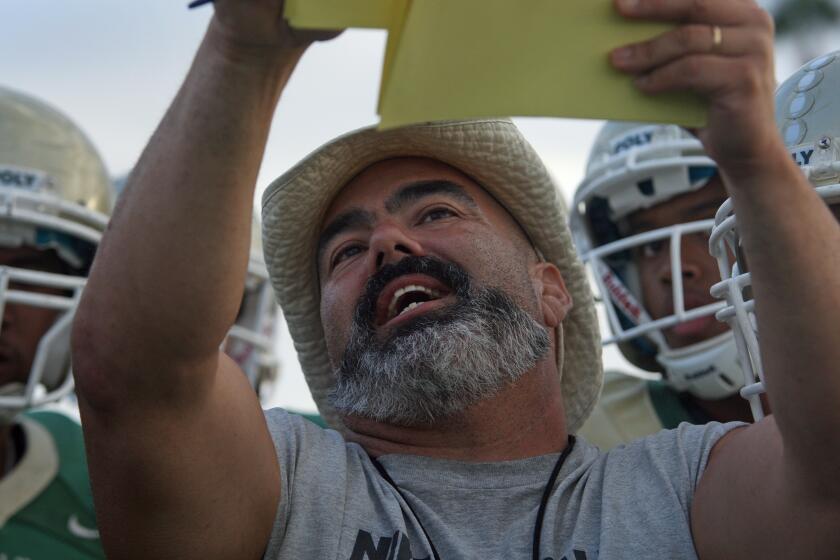W.C. Heinz got to heart of the story
I was 12 the first time I read W.C. Heinz. I’ve never forgotten the story: “The Rocky Road of Pistol Pete.” It was a bittersweet look at Pete Reiser, undone by his own fearlessness when he was the Brooklyn Dodgers’ golden child and marooned years later as a bush league manager with a bad heart and a rattletrap Chevy.
You wouldn’t think a kid plowing through True magazine’s 1957 Baseball Annual would care, but I did. And even today what Bill Heinz wrote still gets me in the heart and the gut.
He was a master of the crystalline sentence, an understated craftsman who put a human face on every subject from busted-luck ballplayers and boxers to surgeons and dogface soldiers. More than that, he was part of history. In the middle of the 20th century, he stood shoulder to shoulder with Red Smith, Jimmy Cannon and the too-often-forgotten John Lardner as they turned sportswriting into something approaching literature, like water into wine.
When Bill died the other day at 93, after outliving all the others and almost every newspaper and magazine he worked for, you could look around and see his influence wherever words count for something. It’s there in the books of David Halberstam and Elmore Leonard, and the newspaper columns of Jimmy Breslin and the stylized journalism of a new generation with no idea that Bill blazed the trail for them by applying the tools of fiction -- scenes, character, dialogue -- to his meticulous reporting.
For all I know, the seed for my own short, mostly happy life as a full-time sportswriter was planted when I read his Pete Reiser story. On my way to the press box, I came across more of his work in the old “Best Sports Stories” anthologies, and once I got where I was going, I heard about something else he’d written, a 1958 boxing novel called “The Professional.” It was a revelation: a flinty-eyed yet profoundly compassionate study of a middleweight fighter and his aging manager chasing a championship in a sport that crushes true hearts. The ending is so sad that Bill had to spend a day walking in the woods around his Vermont home to gather the courage to write it.
Ernest Hemingway, who admired “The Professional” as much as anyone, said you could read it only once. Hemingway was wrong. I’ve read it a half-dozen times, always with the sensation of learning something new about an old friend. I’ve written about it too. The first time I did, in 1992, Bill sent me a thank-you note that remains a prized possession.
But the important thing, to me at least, is what happened a few years later. I’d been working in Hollywood for nearly a decade by then, and a producer I knew got it in his head to turn “The Professional” into a movie. Walter Matthau had had the same idea and had gotten nowhere. Peter Falk fared no better. But the producer asked me to call this guy W.C. Heinz anyway, just to sound him out.
When Bill answered the phone at his home in Vermont, I introduced myself by saying he probably wouldn’t remember my name.
“Sure I do,” he said. “Every time I get depressed, I read that piece you wrote about ‘The Professional.’ ”
The producer wound up taking a one-year option on the novel, but once again no movie came of it. Bill’s disappointment was palpable -- God, how he loved “The Professional.” And there was nothing I could do to buoy his spirits when I wrote a screenplay based on his stories about Lew Jenkins, a wild-haired Texan who drank and floozied himself out of the world lightweight championship and found redemption fighting in the Korean War. Hollywood didn’t buy that, either.
But Bill and I stayed in touch by letter and telephone. Though we never laid eyes on each other, never shook hands, sat down for coffee or any of the other things friends do, I like to think that friends is what we were for the last dozen years of his life.
At first we talked about the obvious: politics, pro football, the invasion of TV by sports-page gasbags. “All that lecturing, all that talking,” he said. “What the hell is that about?”
In time, Bill revealed more of his inner self, starting with his frustration over the cataracts that would rob him of the sight in one eye and leave the other touch-and-go. I heard the grief in his voice in 2002 when he told me his wife, Betty, had died. And I could sense the unease beneath his rueful chuckle as he talked about his move to a care facility three years later. “If I’m not downstairs eating,” he said, “they come up to make sure I’m still alive.”
Once in a while, he would mention that someone whose name I recognized had been up to visit him -- Halberstam or Ken Burns or Bob Costas. But there was never any talk about why he attracted such attention, just as there was never a word about his collaborating with Vince Lombardi on “Run to Daylight” or co-authoring the novel “MASH.”
Where others might have reveled in self-promotion, Bill cared only about doing a job right, treating it with respect. The essence of the man could be found in his ethos: “Don’t admire yourself. Admire your work.”
How fitting that in Bill’s final years, two collections of his journalism were published, his sportswriting in “What a Time It Was” and his World War II correspondence in “When We Were One.” There was no hiding how he felt about the pieces they contained, pieces dating all the way back to his days at the New York Sun. “I read them,” he told me, “and I said, ‘Hey, this is pretty good.’ ”
When he sent me a copy of “What a Time It Was,” it wasn’t just autographed, it was personally copy edited. Failing eyesight be damned, he had tracked down every typographical error and corrected them all in blue ink and block letters as precise as his prose. That was Bill Heinz for you, a professional to the end.
--
John Schulian has been a newspaper sports columnist in Chicago and Philadelphia and a writer-producer of TV dramas. He is the author of “Twilight of the Long-Ball Gods,” a collection of his baseball writing.
More to Read
Get our high school sports newsletter
Prep Rally is devoted to the SoCal high school sports experience, bringing you scores, stories and a behind-the-scenes look at what makes prep sports so popular.
You may occasionally receive promotional content from the Los Angeles Times.
